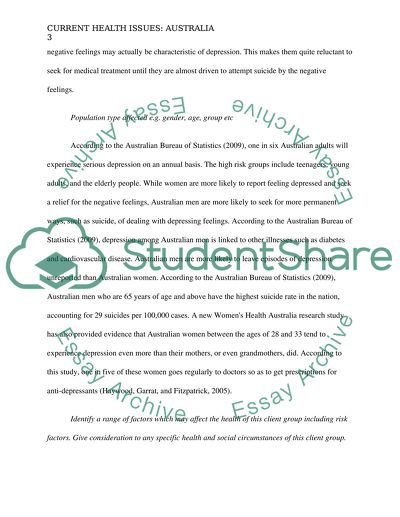Cite this document
(“Current health issues in relation to the Australian Health Care System Essay”, n.d.)
Retrieved from https://studentshare.org/nursing/1484822-current-health-issues-in-relation-to-the
Retrieved from https://studentshare.org/nursing/1484822-current-health-issues-in-relation-to-the
(Current Health Issues in Relation to the Australian Health Care System Essay)
https://studentshare.org/nursing/1484822-current-health-issues-in-relation-to-the.
https://studentshare.org/nursing/1484822-current-health-issues-in-relation-to-the.
“Current Health Issues in Relation to the Australian Health Care System Essay”, n.d. https://studentshare.org/nursing/1484822-current-health-issues-in-relation-to-the.


